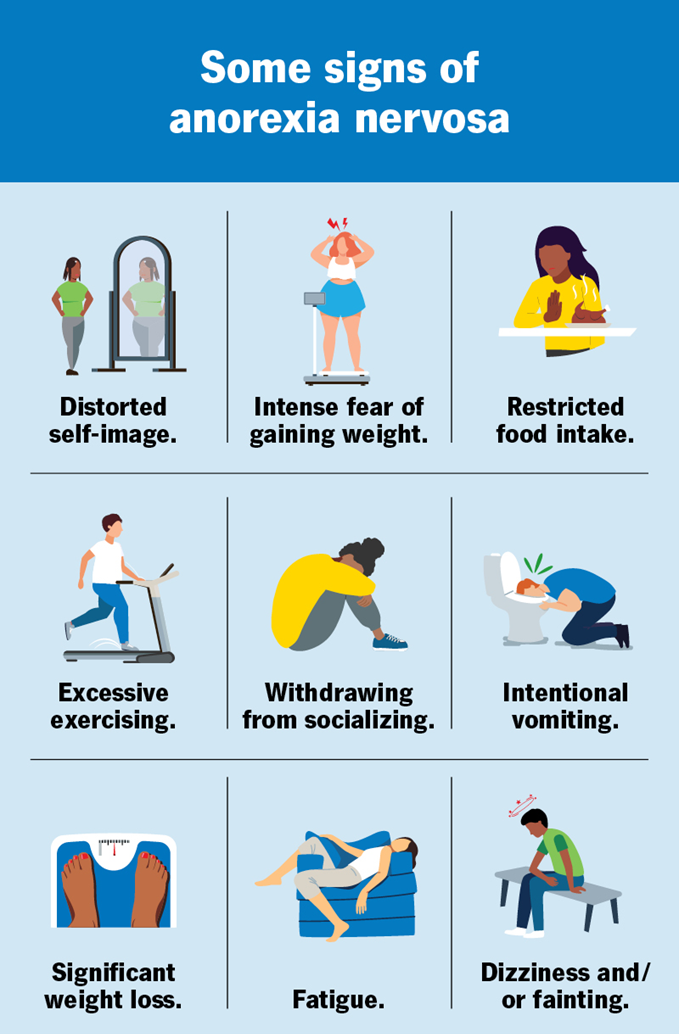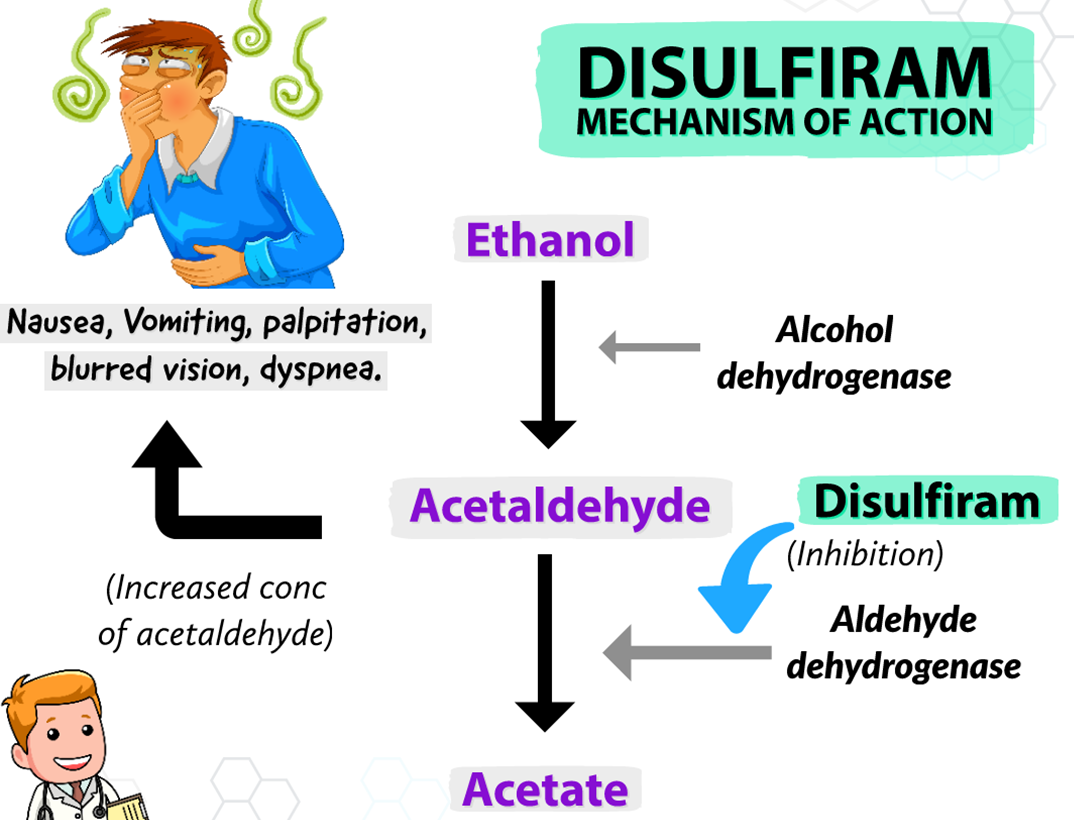The nurse is aware that the major health complication associated with anorexia nervosa is:
Cardiac dysrhythmia resulting in cardiac arrest
Endocrine imbalance causing amenorrhea
Decreased metabolism causing cold intolerance
Glucose intolerance resulting in hypoglycemia
The Correct Answer is A
a. Cardiac dysrhythmia resulting in cardiac arrest
Explanation of Choices
Choice A Reason: Cardiac Dysrhythmia Resulting in Cardiac Arrest
Cardiac dysrhythmias, or irregular heartbeats, are a significant health complication associated with anorexia nervosa. These dysrhythmias can result from electrolyte imbalances, particularly low potassium levels (hypokalemia), which are common in individuals with anorexia due to malnutrition and purging behaviors. Severe dysrhythmias can lead to cardiac arrest, making this one of the most critical and potentially fatal complications of anorexia nervosa. The heart muscle can weaken due to prolonged malnutrition, leading to a condition known as myocardial atrophy, which further increases the risk of cardiac complications.

Choice B Reason: Endocrine Imbalance Causing Amenorrhea
Amenorrhea, or the absence of menstruation, is a common endocrine complication in females with anorexia nervosa. This condition occurs due to the body’s response to severe weight loss and malnutrition, which disrupts the normal production of reproductive hormones. While amenorrhea is a significant health issue, it is not as immediately life-threatening as cardiac dysrhythmias. Amenorrhea can lead to long-term complications such as infertility and osteoporosis but does not typically result in acute medical emergencies.
Choice C Reason: Decreased Metabolism Causing Cold Intolerance
Decreased metabolism and cold intolerance are common symptoms in individuals with anorexia nervosa. The body reduces its metabolic rate in response to prolonged starvation to conserve energy. This can lead to a lower body temperature and increased sensitivity to cold. While uncomfortable and indicative of severe malnutrition, decreased metabolism and cold intolerance are not as immediately dangerous as cardiac dysrhythmias. These symptoms reflect the body’s adaptation to a state of energy deficiency but do not pose an immediate threat to life.
Choice D Reason: Glucose Intolerance Resulting in Hypoglycemia
Hypoglycemia, or low blood sugar, can occur in individuals with anorexia nervosa due to inadequate food intake. However, glucose intolerance and hypoglycemia are less common and less severe complications compared to cardiac dysrhythmias. Hypoglycemia can cause symptoms such as dizziness, confusion, and fainting, but it is typically manageable with appropriate nutritional support. It does not carry the same immediate risk of fatality as cardiac dysrhythmias.
.
Nursing Test Bank
Naxlex Comprehensive Predictor Exams
Related Questions
Correct Answer is B
Explanation
Choice A Reason: Prevents Extrapyramidal Side Effects
Extrapyramidal side effects (EPS) are drug-induced movement disorders that include symptoms such as tremors, rigidity, bradykinesia, and tardive dyskinesia. These side effects are commonly associated with first-generation antipsychotics. While second-generation antipsychotics like olanzapine have a lower risk of causing EPS, their primary use in this context is not to prevent these side effects. Therefore, this choice is not the most appropriate response to the family’s question.
Choice B Reason: Reduces Agitation Until the Lithium Takes Effect
Olanzapine is a second-generation antipsychotic that is effective in managing acute agitation and psychotic symptoms in patients with bipolar disorder. Lithium, while effective for long-term mood stabilization, takes several days to weeks to reach therapeutic levels and exert its full effect. During this period, olanzapine can help reduce the client’s agitation and stabilize their mood. This makes it the most appropriate response to the family’s question.
Choice C Reason: Cures Manic Symptoms
While olanzapine can help manage manic symptoms, it does not “cure” them. Bipolar disorder is a chronic condition that requires ongoing management with medications and therapy. The term “cure” is misleading as it implies a permanent resolution of symptoms, which is not the case with bipolar disorder. Therefore, this choice is not accurate.
Choice D Reason: Ensures High-Quality Sleep
Olanzapine can have sedative effects and may help improve sleep in some patients. However, its primary use in this scenario is to manage acute agitation and psychotic symptoms rather than to ensure high-quality sleep. While improved sleep may be a beneficial side effect, it is not the main reason for its prescription in this context.
Correct Answer is D
Explanation
Choice A Reason: Anchovies
Anchovies are a type of small, oily fish that are often used in various dishes for their strong flavor. They are rich in omega-3 fatty acids and other nutrients. However, there is no known interaction between anchovies and disulfiram. Disulfiram specifically interacts with alcohol and alcohol-containing products, causing unpleasant reactions. Therefore, anchovies are not a food item that needs to be avoided while taking disulfiram.
Choice B Reason: Spinach
Spinach is a leafy green vegetable that is high in vitamins, minerals, and antioxidants. It is generally considered a healthy food and does not have any known interactions with disulfiram. Patients taking disulfiram do not need to avoid spinach as it does not contain alcohol or any substances that would cause a reaction with the medication.
Choice C Reason: Grapefruit Juice
Grapefruit juice is known to interact with various medications by affecting the enzymes that metabolize these drugs in the liver. However, there is no specific interaction between grapefruit juice and disulfiram. While grapefruit juice can affect the metabolism of certain medications, it does not cause the same type of reaction that alcohol does when taken with disulfiram. Therefore, it is not necessary for patients on disulfiram to avoid grapefruit juice.
Choice D Reason: Alcoholic Beverages
Alcoholic beverages are the primary substance that must be avoided while taking disulfiram. Disulfiram works by inhibiting the enzyme acetaldehyde dehydrogenase, which is involved in metabolizing alcohol. When alcohol is consumed, acetaldehyde accumulates in the body, leading to unpleasant symptoms such as nausea, vomiting, headache, and flushing. This reaction is intended to deter individuals from drinking alcohol. Therefore, it is crucial for patients taking disulfiram to avoid all forms of alcohol, including alcoholic beverages, to prevent these adverse reactions.

Whether you are a student looking to ace your exams or a practicing nurse seeking to enhance your expertise , our nursing education contents will empower you with the confidence and competence to make a difference in the lives of patients and become a respected leader in the healthcare field.
Visit Naxlex, invest in your future and unlock endless possibilities with our unparalleled nursing education contents today
Report Wrong Answer on the Current Question
Do you disagree with the answer? If yes, what is your expected answer? Explain.
Kindly be descriptive with the issue you are facing.
